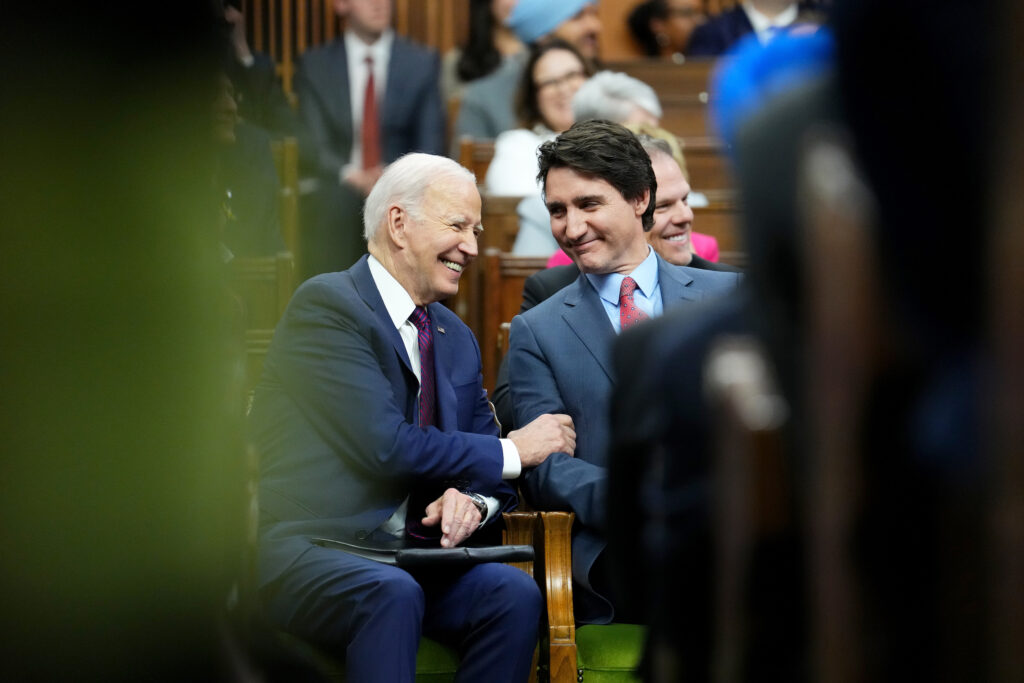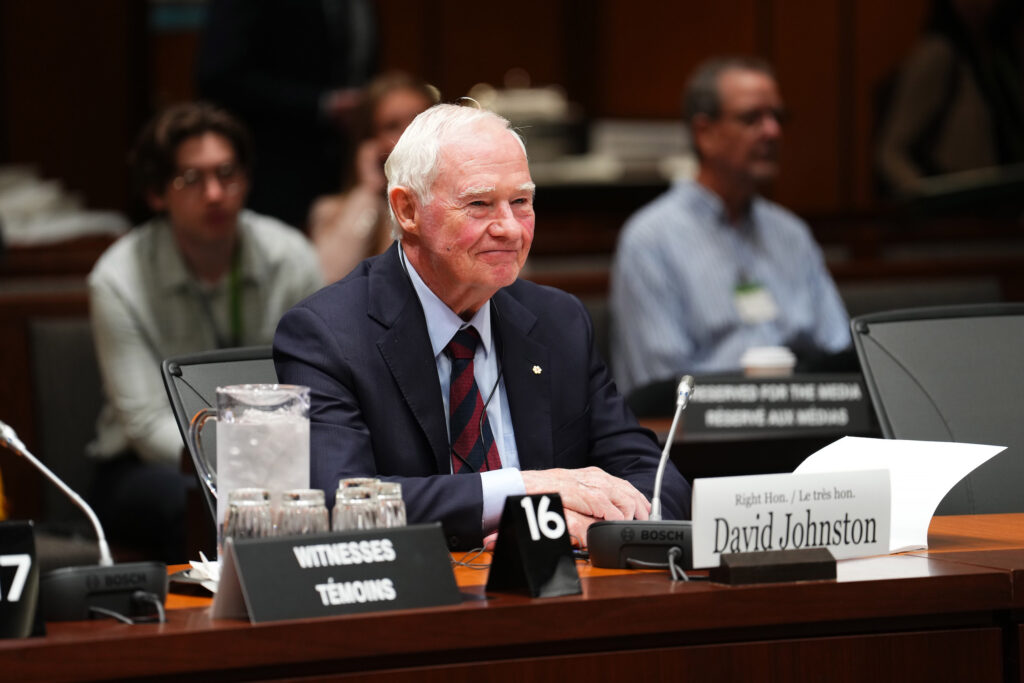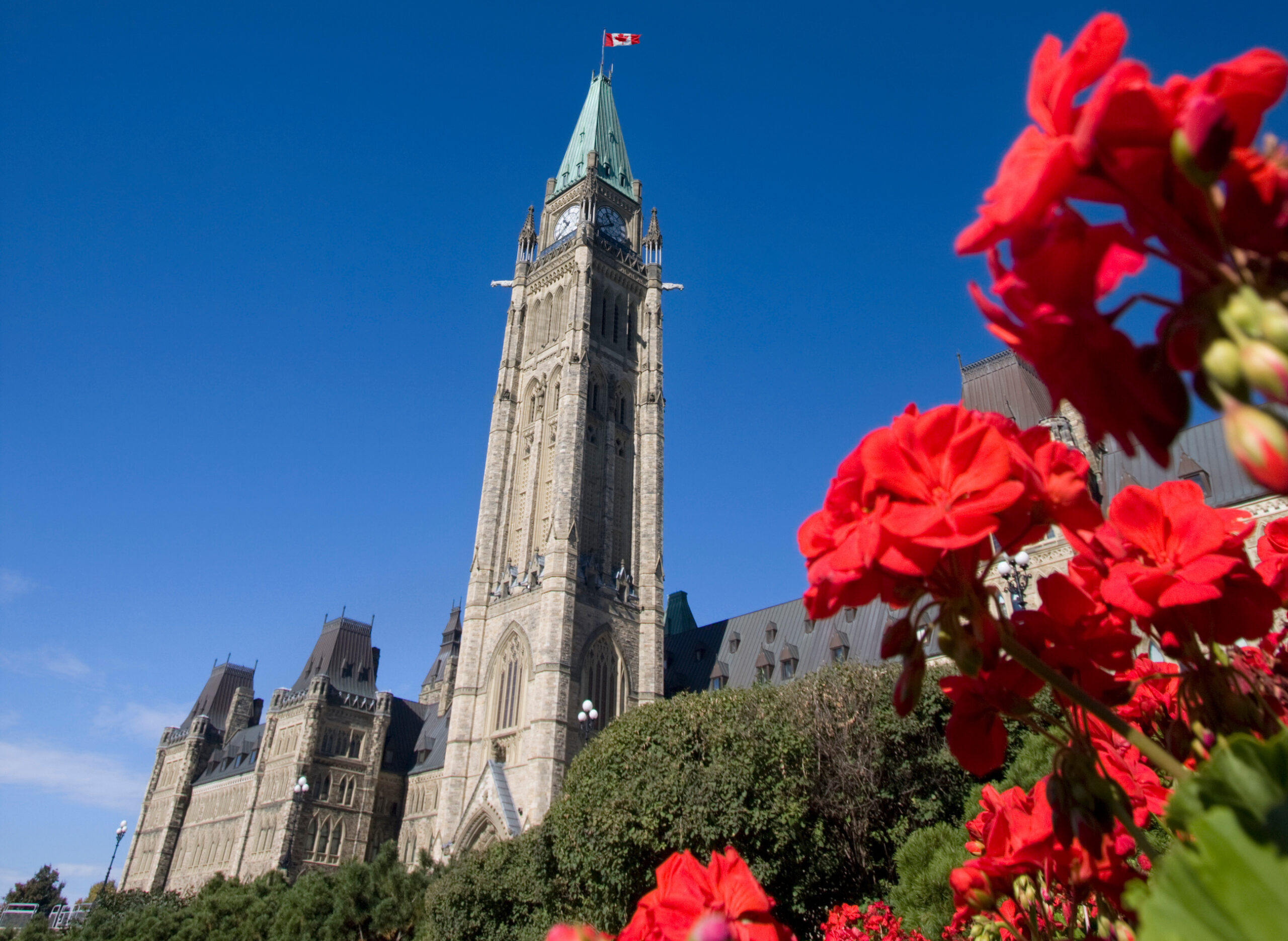The House of Commons adjourned for the summer just after midnight on June 21, ending a partisan and fractious sitting dominated by the furor over Chinese interference in Canadian elections and politics.
While the House will not return until September 18, its committees will be able to meet throughout the summer.
When those committees meet, they will be continuing to use the hybrid model adopted during the pandemic. In a recent vote, the House agreed to make its use permanent, allowing MPs to continue participating remotely in debates and committee meetings.
The winter/spring sitting
For the fourth straight month, the furor over Chinese interference in Canadian elections and politics has dominated national affairs.
Elsewhere, the federal government made some significant progress in pursuing its policy agenda in several areas during the winter/spring sitting. Highlights include:
- On February 7, the prime minister announced a $46.2 billion increase in federal transfers to the provinces and territories for health care. After some complaints, the provinces agreed to take the money, and all except Québec have since signed bilateral deals with Ottawa.
- Budget 2023 was tabled on March 28, delivering help with the cost of living, increased money for health care and $80 billion over the next ten years for climate change and industrial targeted investments and tax credits to counteract the U.S. Inflation Reduction Act.
- U.S. President Joe Biden held a successful visit to Ottawa March 23-24, with the two governments agreeing to close the controversial Roxham Road entry point for asylum seekers in southern Québec.
- The federal government announced unprecedented financial support of up to $13 billion in production subsidies for the $7 billion Volkswagen battery plant being built in St. Thomas, Ontario, matching dollar-for-dollar what U.S. governments offered to secure the plant.
- In late May, Prime Minister Trudeau announced major changes in the senior public service: Privy Council Clerk Janice Charette is retiring on June 24, to be succeeded by John Hannaford, the former deputy minister of natural resources. Also, Finance Canada DM Michael Sabia left the federal government on June 2 to become CEO of Hydro-Quebec.

Major policy and political issues
Foreign interference
Fuelled by repeated high level leaks from within the government and continued briefings by CSIS of MPs that have been targeted, the controversy over Chinese interference in Canadian elections and politics is now in its fourth month. In May, Conservative MP Michael Chong, former Conservative leader Erin O’Toole and NDP MP Jenny Kwan all publicly described CSIS briefings on threats and harassment of them and their families by Chinese officials. On June 13, the RCMP announced it was investigating allegations of foreign meddling attempts against the three MPs.

The UCP wins in Alberta
Premier Danielle Smith and the United Conservative Party (UCP) won the May 29 Alberta election with a reduced majority, winning 49 seats over Rachel Notley’s NDP with 38 seats. In her victory speech, Premier Smith signalled that Alberta would pursue tough negotiations with Ottawa on energy and climate policy.
The national economy
Inflation began to ease during the first quarter, but Statistics Canada reported on May 31 that the economy grew by a stronger than anticipated 3.1 per cent in Q1 of 2023 and that consumer spending remained resilient. The Bank of Canada (BoC) had expected lower growth and in response, on June 7, it increased its policy rate by 25 basis points to 4.75 per cent, observing that “excess demand in the economy looks to be more persistent than anticipated.” The BoC’s next rate announcement will be on July 12.
Canada’s response to the U.S. Inflation Reduction Act
Budget 2023 presented an extensive plan to respond to the U.S. Inflation Reduction Act through targeted investments and tax credits, including $80 billion over the next 10 years for climate initiatives, including targeted support for development of electric vehicles and critical minerals.
Significant changes in the senior public service
On May 30, the prime minister announced the June 24 retirement of Janice Charette, clerk of the privy council, secretary to cabinet and the head of the public service, who guided the bureaucracy through the pandemic. In addition, Michael Sabia, deputy minister of Finance Canada, left the federal government on June 2 to head Hydro-Quebec.
The departure of the two most senior public servants at the same time is unprecedented.
Charette’s successor as clerk, John Hannaford, was formerly deputy minister at Natural Resources Canada, and is uniquely suited for this new role, having worked closely with both the prime minister and Deputy PM and Finance Minister Chrystia Freeland in past assignments. As a former foreign affairs and defence advisor to the PM at PCO, he knows the security and intelligence files, and earlier as DM at International Trade, he managed the negotiations on the Trans-Pacific Partnership and the Canada-United States-Mexico Agreement. From his most recent position at Natural Resources, he is completely conversant with the climate change and energy transition files.
Erin O’Toole says goodbye to Parliament
Former Conservative leader Erin O’Toole said goodbye to electoral politics in a speech to the House on June 12; he will be resigning his seat this week when the House rises for the summer. In his remarks, he offered a frank assessment of the dangers of divisive politics as currently practiced:
“Performance politics is fuelling polarization. Virtue signalling is replacing discussion. And far too often we are just using this chamber to generate clips, not to start national debates.”
“If we do this more, we are allowing others to define the debate for us and risk allowing others to set the course for this country, because too many members on all sides of this chamber – and from time to time I have been guilty of it myself – are becoming followers of our followers when we should be leaders.”
Legislative progress
The House rose late on June 21. The final three weeks of the House sitting have seen the Conservatives deploying the usual procedural tactics to deny the government progress on its legislative agenda.
The following pieces of legislation achieved passage by both Houses in recent days:
- Bill C-22: Canada Disability Benefits Act. This bill received Royal Assent on June 21 and establishes the Canada disability benefit to reduce poverty and to support the financial security of working-age persons with disabilities. It authorizes the government to implement most of the benefit’s design elements through regulations.
- Bill C-13: An Act for the Substantive Equality of Canada’s Official Languages. This legislation received Royal Assent on June 20 and amends the Official Languages Act to codify certain interpretations of language rights to align with Québec’s Charter of the French Language and enshrines the right to work and be served in French in Québec and predominantly francophone regions in other provinces. This includes federally regulated enterprises, such as banks, airports and railways. Under the new law, the official languages commissioner will have power to impose orders or fines of up to $25,000 and requires Supreme Court justices to be bilingual.
- Bill S-5: Strengthening Environmental Protection for a Healthier Canada Act. This bill received Royal Assent on June 13 and makes a number of amendments to the Canadian Environmental Protection Act, including the development and publication of a Plan of Chemicals Management Priorities which sets out a multi-year, integrated plan for the assessment of substances already in commerce in Canada and to review the plan every eight years.
- Bill C-18: Online News Act. This bill received Royal Assent on June 22, on the final day of the sitting in the Senate. It had been passed to the Senate for concurrence by the House of Commons the previous day, one of the final items of business before the House rose for the summer. Once implemented, the act will require large technology and media companies, like Google, Apple and Facebook, to negotiate compensation deals with Canadian news organizations for the content that appears on their digital platforms. The legislation would allow individual news outlets to reach private deals with the tech companies. If no agreement can be reached, the Canadian Radio-television and Telecommunications Commission (CRTC) would act as mediator to determine fair compensation. This compensation is intended to address the massive declines in advertising revenue generated by Canadian news media firms, particularly at the local level, over the past decade. In response to the passing of the legislation, Meta, the parent company of Facebook and Instagram, announced it would be pulling all news content from its platforms in Canada. Google has also made a similar warning that it could limit searches for news in Canada. Facebook, Google and Apple have each already signed partnerships with some Canadian news organizations to pay for the rights to their news content, including The Globe and Mail.
The political state of play
By-elections reinforce the status quo
The four June 19 by-elections produced no change in the overall standings of the two principal parties: the Liberals took two seats and the Conservatives the same, in safe ridings where no upsets were expected:
- The Liberals won in Notre-Dame-de-Grâce—Westmount, where former party president Anna Gainey took 50.8 per cent of the votes cast, with the NDP, Conservative and Green candidates each receiving between 13.3 per cent and 13.8 per cent of the votes.
- In Winnipeg South Centre, Ben Carr, son of the late MP Jim Carr, took the riding with 55 per cent of the votes, ahead of the Conservative and NDP candidates, with 23 per cent and 14 per cent respectively.
- In Portage-Lisgar (Manitoba), Conservative Branden Leslie triumphed with 64.9 per cent, beating Peoples’ Party of Canada, Maxime Bernier, who ran to make a point, but received 17 per cent of the votes, less than the 21 per cent the PPC candidate won in 2021.
- In Ontario’s Oxford riding, Arpan Khanna bested Liberal David Hilderley by 43 per cent to 36 per cent, after a bitterly contested nomination battle resulted in former Conservative MP Dave MacKenzie, whose daughter lost the nomination, switching to support the Liberal candidate.
One vacant seat remains to be filled. On June 18, the Prime Minister announced that a by-election will be held on July 24, 2023, in the electoral district of Calgary Heritage.
